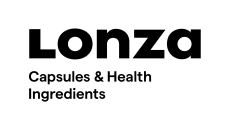Supplement safety questioned - again
The two articles – What’s Really in Supplements? and A Focus on the Effects of Dietary Supplements Among Troops in War Zones – suggest that some products may contain ingredients that are harmful to health.
Side effects?
According to The Wall Street Journal (WSJ) article, some doctors have concerns about side effects from certain herbal ingredients found in supplements. And recent reports from the Food and Drug Administration about supplements containing undeclared drugs have drawn new attention to the issue, it wrote.
The comments are not new, as dietary supplements have long been the focus of negative media attention. This intensified after May this year, when one of the best-selling supplement brands for weight loss – Hydroxycut – was recalled after being linked to potential liver toxicity.
One of the main criticisms repeated in media reports – and hinted at again in the WSJ article – is that dietary supplements are not regulated.
Trade groups, on the other hand, are clear that their industry has a strict regulatory framework. They point out that the issues arise from a minority of irresponsible supplement makers that damage the industry as a whole.
WSJ quotes Andrew Shao, vice president of scientific and regulatory affairs at the trade group Council for Responsible Nutrition (CRN) as saying that safety problems are a "rare occurrence," but "there are some issues, we recognize that."
Supplements for the military
The New York Times article reports on the use of supplements by the military. It quotes a physician who commanded a combat support hospital in Baghdad in 2006-2007, who said his unit handled 2,332 cases of soldiers complaining of palpitations or fainting spells.
These, he suggests, could be caused by dietary supplements designed to increase muscle mass as they often contain substances that can make users susceptible to heat stroke.
According to the report, there are currently no plans to remove supplements from army base stories. Nevertheless, Ellen Embrey, acting principal deputy assistant secretary of defense for health affairs, said the Pentagon was reviewing supplements as part of a larger study into optimizing troop performance.
Consumer choice
The WSJ article also suggests that consumers need to be more wary of the supplement products they choose, in order to minimize the risk to their health. It quotes Linda Katz, interim chief medical officer of the FDA's Center for Food Safety and Applied Nutrition as saying: "Consumers need to be their own advocate, and read and understand what they are taking."
Shao told NutraIngredients-USA.com “CRN was pleased to have had the opportunity to speak with the Wall Street Journal as they were working on this story. This is a very complicated issue to explain in a short news article and we hope that consumers will not walk away from this article with the false notion that supplements are dangerous (…)”
“As the story states, problematic and extreme cases, such as the ones cited in the article are unusual and rare. Rather, supplements, when used responsibly, can play an important role in overall health and wellness.”
To access the WSJ article, click here.
To access the NYT article, click here.











